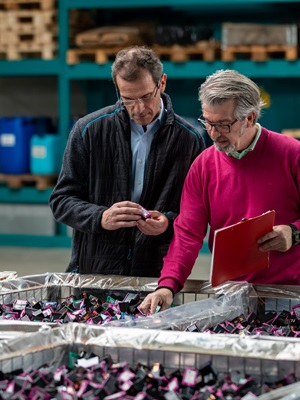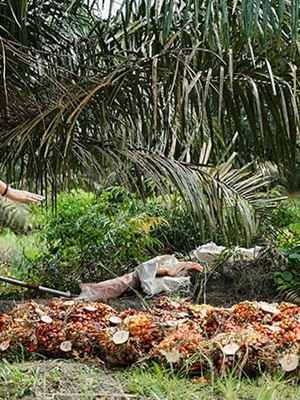In an era characterized by environmental, economic, and social challenges, achieving sustainability has never been more urgent. Recent studies have shown that the traditional linear economy—focused on raw material extraction, production, consumption, and disposal—generates over 1.47 billion tons of solid waste annually, much of which ends up in landfills, highlighting the inefficiencies of our current waste management systems. Despite advancements in waste management, waste is still a significant issue in many countries.
Sustainability aims to balance environmental health, economic growth, and social well-being, ensuring that resources are available for future generations. Within this context, the Zero Waste movement plays a crucial role here by advocating practices like reducing, reusing, recycling, and composting, These not only protect the environment but also encourage responsible consumption and community resilience. Therefore, it is crucial to understand Zero Waste within the context of sustainability and how can we adopt a Zero Waste lifestyle while promoting sustainability. This article explores the principles of Zero Waste, explains their role in achieving sustainability goals, and provides practical strategies for incorporating these practices into daily life.
Understanding Zero Waste within Sustainability
Population growth, resource distribution, and consumption patterns are fundamental in promoting sustainable living. Several researchers, such as Bartlett, claim that "sustainable growth" is a contradiction in terms, as the Earth may have already reached or exceeded its carrying capacity -the amount of population that can be supported in an area without causing permanent damage. This underscores the need of addressing sustainability from environmental, social and economic perspectives. Environmental sustainability seeks to conserve natural resources for future generations while Economic sustainability aims for long-term prosperity without depleting natural resources, balancing growth, resource efficiency, and social equity. Lastly, social sustainability ensures equitable access to resources and opportunities, fostering inclusive environments where everyone can thrive.
The Zero Waste approach, according to the Zero Waste International Alliance, is a thoughtful strategy that promotes lifestyles resembling natural cycles. It sees discarded materials as valuable resources and aims to cut down waste through responsible production and consumption practices. By focusing on principles like refusing, reducing, reusing, recycling, and composting, Zero Waste helps minimize the amount of waste produced and its harmful effects on the environment and human health. When integrated into sustainability efforts, Zero Waste empowers communities and businesses to address critical challenges such as environmental decline and economic instability. By advocating for a circular economy where products are made for reuse or recycling, we can significantly lessen the amount of waste sent to landfills and conserve precious resources.
In conclusion, integrating Zero Waste principles into sustainability efforts is crucial addressing challenges such as population growth, resource consumption patterns. By responsibly managing resources, we can protect our environment, promote economic health, and ensure social equity. Embracing Zero Waste practices isn’t just an individual choice but a collective responsibility that can drive significant change. As we transition to more sustainable lifestyle, we create a healthier, more equitable world for current and future generations.
Living a Zero Waste lifestyle goes beyond being a trend—it's a commitment to reducing environmental impact, enhancing economic efficiency, and promoting personal well-being. This comprehensive approach integrates sustainable practices that benefit individuals, communities, and the planet. By minimizing pollution and conserving resources, we actively contribute to environmental sustainability, reducing greenhouse gas emissions and alleviating pressure on landfills. Moreover, adopting zero waste practices offers significant economic benefits. It supports local economies by promoting green industries and creating jobs in sustainable sectors. Individuals can save money
through mindful consumption and reuse, reducing waste disposal costs and improving overall economic efficiency. This approach not only strengthens local communities but also contributes to a more sustainable and resilient economic model.
On a personal level, a Zero Waste lifestyle promotes well-being by encouraging healthier choices and reducing exposure to harmful chemicals. Emphasizing natural and organic alternatives supports long-term health and builds a sense of community responsibility. By uniting individuals in environmental stewardship, a Zero Waste mindset inspires deeper connections purpose in contributing positively to the world.
Core Principes of Zero Waste - “The 5Rs”:
1. Refuse: This principle encourages individuals and businesses to refuse items that are unnecessary or come with excessive packaging. By saying no to what we don't need, we can prevent waste from entering our lives in the first place.
2. Reduce: Focuses on minimizing the amount of waste generated in the first place. This can involve choosing products with less packaging, opting for durable goods over disposable ones, and generally consuming less overall.
3. Reuse: Involves finding ways to use items again instead of throwing them away after a single use. This can include using reusable containers and bags, repairing items instead of replacing them, or donating goods for others to use.
4. Recycle: Recycling involves processing materials that would otherwise be discarded into new products. It's important to sort recyclable materials properly and support recycling programs in our communities.
5. Rot: Rot, or compost, refers to the natural process of decomposing organic waste. Composting food scraps and yard waste returns nutrients to the soil, reducing the amount of waste sent to landfills and promoting healthier soils.
Practical Applications of Zero Waste Principles:
Implementing Zero Waste principles starts with small changes in daily habits. Begin by refusing single-use plastics and bringing reusable bags, jars, and containers when shopping. Consider buying in bulk and choosing high quality, durable items and second-hand goods to minimize waste and reduce the demand for new products. Switch to plastic-free alternatives like wood or stainless steel cutlery, bamboo toothbrushes, stainless steel cup and bottle, glass, clay pot, loofah sponges and homemade natural products. Use washable tools, repurpose old clothes as cleaning rags, and recycle packaging where possible. When buying products in plastic opt for plastic that is easier to recycle like Polyethylene Terephthalate (PET), High Density Polyethylene (HDPE) and Polypropylene (PP). Plan meals to minimize food waste and compost food scraps and biodegradable items to enrich the soil, promoting a healthy ecosystem and reducing landfill waste.
These practical changes directly support environmental sustainability by reducing waste generation, conserving resources and preventing chemical pollution. They also contribute to economic sustainability by reducing waste management costs, creating jobs in recycling and remanufacturing industries and supporting local economies. Over time, adopting a Zero Waste lifestyle also saves you lots of money through reusing items, spending smart and reducing consumerism habits. Furthermore, these changes promote social sustainability by addressing systemic injustices, empowering communities, creating economic opportunities, promoting education and awareness, and contributing to global sustainability efforts.
Conclusion :
The Zero Waste movement stands as a fundamental pillar of sustainability, offering a pathway towards waste reduction and resource efficiency in a world grappling with environmental challenges. Through the principles of refuse, reduce, reuse, recycle, and rot, we not only reduce our environmental footprint but also support local economies and promote social equity. Starting with small intentional changes, each individual contributes to a larger collective impact. By embracing Zero Waste, we take ourselves towards a circular economy that respects and preserves our finite resources. As we navigate the complexities of our modern age, committing to Zero Waste isn’t just an option—it’s a necessity for creating a cleaner, healthier, and more equitable world for present and future generations.
Writer’s Advice:
Adopting a Zero Waste lifestyle may seem challenging at first, but starting with small, manageable steps and seeking support from communities can make the transition smoother. Educating oneself about sustainable practices and embracing flexibility along the journey are crucial for long-term success. Remember, every effort towards Zero Waste contributes to a sustainable future.
Web Sources:
• (2018) “Zero Waste Definition”. In (ZWIA) Zero Waste International Alliance. Retrieved July, 6, 2024 from https://zwia.org/
• Dunavan, Sandra. (2007) “Sustainability”. In Encyclopedia. Retrieved July, 6, 2024 from https://www.encyclopedia.com
• (June 14, 2023) “The 3 Pillars of Sustainability: Environmental, social and economic”. In Enel. Retrieved July, 10, 2024 from Enel.com
• “What is Waste Management, steps, methods and advantages”. In Natural Energy Hub. Retrieved July, 10, 2024 from Naturalenergyhub.com
References:
• Hamid, Saima. 2020. Zero Waste: A sustainable Approach for Waste Management. University of Kashmir.
• Zaman, Atiq. 2022. Zero-Waste: A New Sustainability Paradigm for Addressing the Global Waste Problem. The Vision Zero Handbook (pp. 1-24)
• Bogusz, Malgorzata. 2021. The Concept of Zero Waste in the Context of Supporting Environmental Protection by Consumers. University of Agriculture in Krakow.
• Pietzsch, Natalia. 2017. Benefits, Challenges and Critical factors of success for Zero Waste: A systematic literature review. Waste Management Volume 67.
• Valenzuela-Fernandez, Leslier. 2022, Zero-Waste Management and Sustainable Consumption: A Comprehensive Bibliometric Mapping Analysis. University of Chile.
• Bogusz, Malgorzata. 2021. The Concept of Zero Waste in the Context of Supporting Enviromental Protection by Consumers. University of Agriculture in Krakow.
Posted 25/07/2024


















1 years ago
best information!